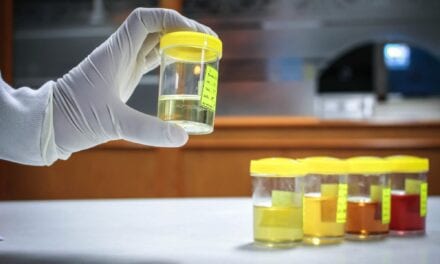The FDA awarded Guangzhou, China-based AnchorDx a Breakthrough Device Designation for UriFind, an early detection test for bladder cancer based on urine DNA methylation detection. According to AnchorDx, this is the first Breakthrough Device Designation to be granted to a liquid biopsy test for bladder cancer detection developed in China.
Compared with the traditional gold standard cystoscopy for bladder cancer detection, UriFind is non-invasive, painless, and easy to operate. It allows for the accurate detection of bladder cancer by simply using the test to conduct methylation detection of exfoliated cell DNA in a collected urine sample. UriFind has been shown to perform as well as cystoscopy, and significantly better than exfoliative cytology and Fluorescence in situ hybridization (FISH), in the detection of early and non-muscle invasive bladder cancer (NMIBC). The UriFind test demonstrates increased advantages in the detection of early, micro, residual, and recurrent bladder cancer, and provides a sound basis for the clinical diagnosis of bladder cancer.
The test’s research achievements have been published in The Journal of Clinical Investigation and Clinical Epigenetics. Following years of real-world sample accumulation and verification by AnchorDx, the accuracy, sensitivity, and specificity of UriFind have now reached 89.3%, 87.4%, and 91.5%, respectively. During the FDA Breakthrough Device Designation approval process, AnchorDx provided head-to-head experiment results with another internationally approved product, which company officials say proves UriFind’s superior performance in detection sensitivity and ease of use.
UriFind’s detection method has been included in the newly released 2021 Guidelines for Diagnosis and Treatment of Bladder Cancer in China and has also gained EU CE marking. In addition, AnchorDx has passed the medical device quality management system certification – TUV ISO 13485 Certification.
At present, AnchorDx’s UriFind has entered the registered clinical trials stage in China, and clinical trials in the United States are expected to launch soon.





